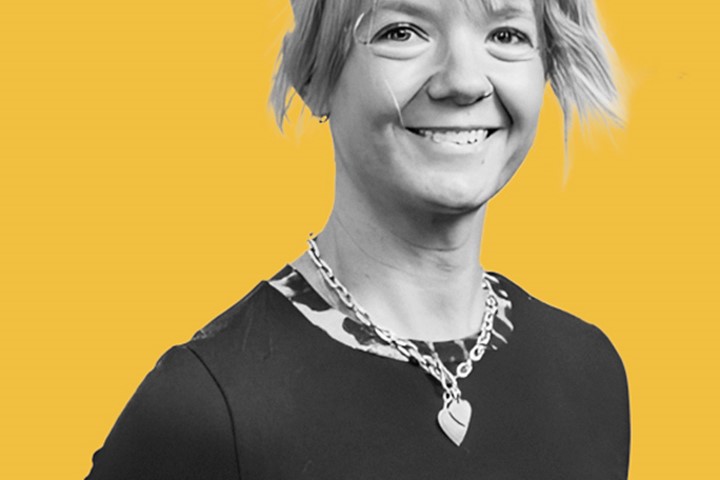Green skills for the future
In this blog, Charlotte Bonner, National Head of Education for Sustainable Development (ESD) at the Education and Training Foundation (ETF), discusses her insights from two sessions at the World Skills UK CPD event, ‘Developing excellence in teaching and training’.

As the National Head of ESD, it’s my role at the ETF to look at how we best support the sector’s adoption of Education for Sustainable Development (ESD). We aim to enhance teaching, learning, assessment and leadership, so that learners are well-equipped to positively contribute to sustainability goals in their lives.
I was recently asked to chair two sessions on ESD at the WorldSkills event, held in partnership with the ETF in November. Sustainability is something of a zeitgeist in the Further Education and skills (FE) sector at the moment, so this was an ideal opportunity to look at Green Skills and ESD from two different lenses: the educator and the employer. The panels represented a rich variety of backgrounds and industries and these sessions explored what knowledge, skills, behaviours and values our learners might need for the future.
ESD from an educator’s perspective
In our first session, I was joined by Nuala Trace from Manchester Adult Education Service, and Sarah Condren from Burnley College, where we discussed how to engage with all cohorts of staff to develop a coordinated, cohesive and whole-organisation approach to ESD. Teachers of course have a critical role to play in embedding and enhancing ESD within learning, but it shouldn’t stop there. All staff, from leaders and governors, to the facility team and personal tutors, can contribute. The most effective practice is when there’s a whole-organisation approach and all staff work to create a community that develops sustainability skills.
We shared ideas and discussed the many ways a learning institute can achieve this; from developing sustainability skills and an ESD culture within the classroom, to using buildings, estates and operations to deliver sustainable practices. This not only showcases ESD to learners, it also normalises sustainable practices. Practitioners can also work with local employers and community organisations to enrich their curriculum and further develop positive sustainability practices.
ESD research and support
Another key topic that arose in the educator session was how the ETF supports practitioners to develop sustainability skills in their learners. We offer many different ESD tools and resources, all of which can be found on the ETF website. During the session, Nuala highlighted the resource she had developed in 2021 on behalf of the ETF to help practitioners who teach English for Speakers of a Second Language (ESOL) learners. Nuala helped develop practical ESD resources for ESOL educators, alongside colleagues from HOLEX and Westminster and Tower Hamlets Adult Education Services. We have already been overwhelmed by the positive response of ESOL practitioners to these resources.
ESD from an employer’s perspective
The second session focused on employers’ current and future demand for green skills and we had a fantastic range of perspectives within our panel. I was joined by Andrew Bargery from PWC, Gert Rohrmann from Siemens, and David Reay from the University of Edinburgh and the Green Jobs Taskforce. One thing became clear: there is real potential to build and foster great relationships between employers and educators to help meet sustainability skills gaps.
We debated several of the key challenges that employers face – particularly around skills gaps amongst new recruits.. As the educators within the audience agreed, we must equip our learners with a variety of skills; whether that’s resilience, ability to adapt, or the knowledge of the core concepts of sustainability. These skills are often referred to as an ESD curriculum entitlement, seen as functional skills to be developed by all learners. In our panel, the employers recognised there was a high demand for these types of skills.
Developing a learner mindset
Another key message that emerged from our panel of employers was the need to develop learners’ growth mindset and commitment to lifelong learning . This was cited as vital so that people are able to easily adopt new skills in future, ensure their knowledge is up to date, and are open to innovation. Through the Q&A, the term ‘transitional principles’ was used – developing a mindset that’s open, resilient and adaptable to change and understands short and long term perspectives – these are the skills that will help learners throughout their whole careers as jobs, context and technology will perpetually change.
ESD within the ETF: Researching the sector
It was well-evidenced from both sessions that the FE and training sector has a vital role to play in combatting climate change and enabling the achievement of sustainability and social justice, both nationally and globally. But as a practitioner, there are several challenges to face. The landscape of ESD can feel overwhelming, and there are gaps in the ESD knowledge that must be addressed. The FE and training sector is also at full capacity, and many teachers simply do not have the time or resources to pursue ESD yet.
In 2021, the ETF completed two pieces of ESD research to help address these challenges and inform our work, as well as that of the sector. The research findings show there is a near-universal recognition that the sector has a valuable role to play , however, over 60 per cent of educators don’t feel well-equipped to bring this into their teaching and learning practice.
The ETF is using this information to shape and develop our core ESD support to build the confidence and competence of the FE and training workforce. Having published the findings on our website, we hope the research will provide practitioners, providers and stakeholders with the information to plan their own ESD strategies, in the same way it has helped inform the ETF’s strategy to support the sector’s adoption of ESD. We have also been sharing our findings with the Department for Education’s new Climate Change and Sustainability Unit as well as other sector bodies working on ESD. I’m personally delighted that our insights are being used to inform and help shape sector policy.
Spreading the word of ESD
The two WorldSkills UK discussions were part of a wider initiative in raising awareness of the ESD tools, resources, challenges and opportunities within a sector that has a huge appetite for sustainability. There are so many effective ESD activities happening across our sector, it’s imperative we share effective teaching practices and continue to signpost tools and resources for practitioners.
As the National Head of ESD, I was really pleased by the energy and enthusiasm our sessions were met with, and the many insightful questions that were asked by both employers and educators (as we ran out of time to answer every question, we’ve created a Q&A resource which can be found on the WorldSkills UK On Demand platform). There is a real appetite for ESD, and whilst there’s always more to discuss at these events, I left with a spring in my step.







